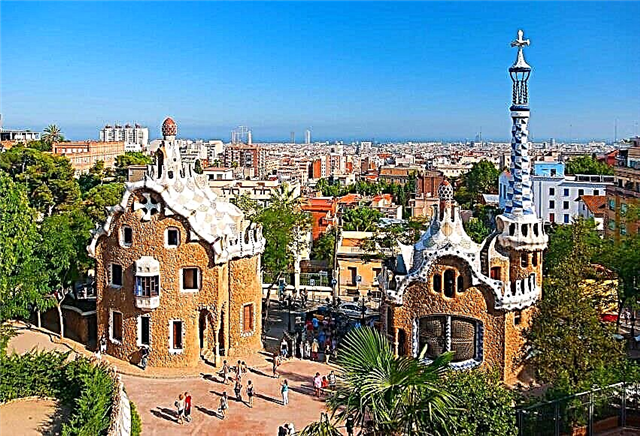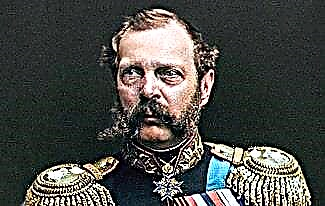Voltaire (birth name François-Marie Arouet) - one of the greatest French philosophers and educators of the 18th century, poet, prose writer, satirist, tragedian, historian and publicist. The exact origin of the pseudonym "Voltaire" is unknown.
Voltaire's biography is full of interesting facts. It had many ups and downs, but, nevertheless, the name of the philosopher is firmly entrenched in history.
So, before you is a short biography of Voltaire.

Voltaire's biography
Voltaire was born on November 21, 1694 in Paris. He grew up and was brought up in the family of the official François Marie Arouet.
The mother of the future thinker, Marie Margaret Daumard, came from a noble family. In total, Voltaire's parents had five children.
Childhood and youth
Voltaire was born such a weak child that his mother and father initially did not believe that the boy could survive. They even called a priest, thinking that their son was about to die. However, the kid still managed to get out.
When Voltaire was barely 7 years old, his mother died. This was the first serious tragedy in his biography.
As a result, the upbringing and care of his son fell entirely on the shoulders of the father. Voltaire often did not get along with his parent, as a result of which there were repeated quarrels between them.
Over time, Voltaire began to study at a Jesuit college. Over the years, he came to hate the Jesuits, who held religious traditions above human life.
Later, his father arranged for Voltaire in a law office, but the guy quickly realized that legal matters were of little interest to him. Instead, he took great pleasure in writing various sarcastic works.
Literature
At the age of 18, Voltaire wrote his first play. He continued to be a writer, earning himself a reputation as the king of ridicule.

As a result, some writers and dignitaries were afraid to discover the works of Voltaire, in which they were exhibited in a bad light.
In 1717, the witty Frenchman paid the price for his sharp jokes. Having ridiculed the regent and his daughter, Voltaire was arrested and sent to the Bastille.
While in prison, the writer continued to study literature (see interesting facts about literature). When he was released, Voltaire gained popularity thanks to his play Oedipus, which was successfully staged at the local theater.
After that, the playwright published about 30 more tragedies, many of which were included in the French classics. In addition, messages, gallant lyrics and odes came out from under his pen. In the works of the Frenchman, tragedy with satire was often intertwined.
In 1728 Voltaire published his epic "Henriad", in which he fearlessly criticized despotic monarchs for their fanatical faith in God.
2 years later, the philosopher published the poem "The Virgin of Orleans", which became one of the brightest works in his literary biography. An interesting fact is that the poem was allowed for publication only 32 years after its appearance, before that it was published only in anonymous editions.
The Maid of Orleans spoke about the famous French heroine Jeanne d'Arc. However, it was not so much about Jeanne as about the political system and religious institutions.
Voltaire also wrote in the genre of philosophical prose, forcing the reader to reflect on the meaning of life, moral norms, the behavior of society and other aspects.

Among the most successful works of Voltaire is considered the short story "Candide, or Optimism", which in the shortest possible time became a world bestseller. For a long time, it was not allowed to print due to the large number of sarcastic phrases and obscene dialogues.
All the adventures of the heroes of the book were aimed at ridiculing society, officials and religious leaders.
The Roman Catholic Church blacklisted the novel, but this did not prevent it from gaining a large army of admirers, including Pushkin, Flaubert and Dostoevsky.
Philosophy
During the biography of 1725-1726. a conflict arose between Voltaire and the nobleman de Rogan. The latter beat the philosopher for daring to ridicule him.

As a result, Voltaire was again sent to the Bastille. Thus, the thinker was convinced by his own experience of the bias and injustice of society. In the future, he became an ardent defender of justice and social reform.
Having been released, Voltaire was expelled to England by order of the head of state. There he met many thinkers who convinced him that without the help of the church it is impossible to get closer to God.
Over time, Voltaire published Philosophical Letters, in which he promoted the ideas of John Locke, along with the rejection of materialistic philosophy.
In his work, the author talked about equality, security and freedom. However, he did not give an exact answer to the question of the existence of life after death.
Although Voltaire severely criticized church traditions and clergy, he did not support atheism. The thinker was a deist - a belief in the existence of a Creator, in which any dogmas or miracles are denied.
Personal life
In addition to writing, Voltaire loved to play chess. For almost 20 years his rival was the Jesuit Adam, with whom he played thousands of games.
The beloved of the famous Frenchman was the Marquis du Châtelet, who loved mathematics and physics. An interesting fact is that at one time the girl was engaged in the translation of some of the works of Isaac Newton.

The marquise was a married woman, but she believed that all duties to her husband should be fulfilled only after the birth of children. As a result, the girl repeatedly started short-lived romances with various scientists.
Du Châtelet instilled in Voltaire a love of equations and complex problems that young people often solved together.
In 1749, a woman died after giving birth to a child, which became a real tragedy for the thinker. For some time he lost all interest in life, falling into a deep depression.
Few know that Voltaire was a millionaire. Even in his youth, he received a lot of good advice from bankers, who taught him how to properly manage capital.
By the age of forty, Walter had amassed a huge fortune by investing in equipment for the army and allocating funds to buy ships.
In addition, he acquired various works of art, and received income from the pottery production located on his estate in Switzerland.
Death
In old age, Voltaire was incredibly popular. Prominent politicians, public and cultural figures wanted to communicate with him.

The philosopher corresponded with various heads of state, including Catherine II and the Prussian king Frederick II.
Voltaire died on May 30, 1778 in Paris at the age of 83. Later, his remains were transferred to the Parisian Pantheon, where they are today.









